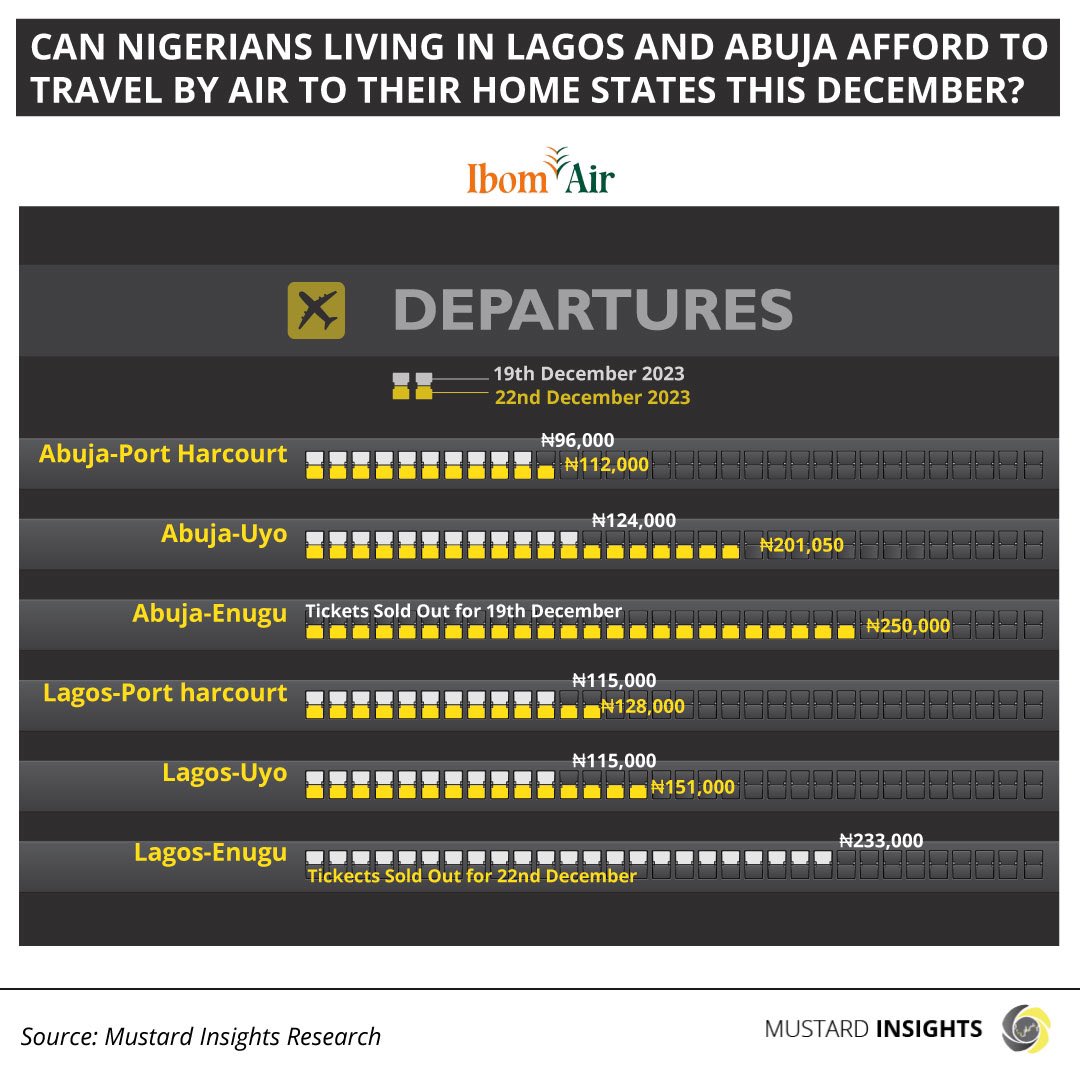In recent times, the skies above Nigeria seem to be soaring to new altitudes, not just in terms of flights but also in the cost of air travel. Passengers are feeling the pinch in their pockets as air ticket prices hit an all-time high, leaving many to wonder about the factors driving this upward trend. While operators appear constrained, aviation experts emphasize the need for proactive solutions to address the challenges and alleviate the burden on travelers.
A Skyrocketing Surge:
Nigerians, accustomed to a certain range of airfare prices, are now grappling with the shock of exorbitant costs for domestic flights. The price of air tickets, especially for routes from Lagos and Abuja to other parts of Nigeria, has witnessed an alarming 100% increase. One-way tickets, once relatively affordable, now command prices exceeding ₦100,000, leaving travelers in disbelief and discontent.
Unraveling the Causes:
Several factors contribute to this unprecedented surge in air ticket prices, and understanding them is crucial for both operators and passengers:
- Festive Period Impact: The approaching festive season, particularly the month of December, sees a significant spike in travel demand. As families plan reunions and vacationers seek holiday destinations, the increased demand naturally influences ticket pricing. Airlines, aware of the heightened demand, adjust their fares to maximize profits during this peak period.
- Foreign Exchange Woes: One of the primary culprits behind the escalating airfare is the dependence on imported aviation fuel. With the exchange rate currently standing at N881.88/$1, the aviation industry grapples with increased costs for fuel, subsequently passing the burden onto passengers. The vulnerability of the Naira to foreign exchange fluctuations adds an additional layer of complexity to the situation.
- Logistics Challenges: The aviation sector is not immune to the logistical challenges that plague various industries. Issues such as supply chain disruptions, delays in fuel delivery, and maintenance bottlenecks contribute to operational inefficiencies. These challenges, in turn, impact the overall cost structure for airlines, compelling them to adjust ticket prices to maintain viability.
- Middlemen in the Market: The presence of intermediaries in the air travel ecosystem also plays a role in the rising ticket prices. Middlemen contribute to the cost chain, and their involvement can result in higher fares for end-users. Streamlining these intermediaries and optimizing distribution channels could potentially mitigate the impact on ticket costs.
Seeking Solutions:
While the challenges are evident, the aviation industry and relevant stakeholders must actively pursue solutions to ensure sustainable and affordable air travel in Nigeria. Proactive measures can include:
- Fuel Sourcing Strategies: Exploring alternative sources for aviation fuel within Nigeria or regionally can provide a buffer against foreign exchange fluctuations.
- Operational Efficiency: Airlines should invest in streamlining operations, reducing logistical bottlenecks, and improving maintenance processes to enhance overall efficiency and cost-effectiveness.
- Government Intervention: Government authorities can play a crucial role by offering incentives, addressing logistical challenges, and implementing policies that promote fair competition and affordable air travel.
- Transparency in Pricing: Ensuring transparency in the pricing structure can build trust among passengers. Airlines should clearly communicate the factors influencing ticket costs, helping passengers understand the dynamics at play.
In conclusion, the rising cost of air tickets in Nigeria is a multifaceted issue that demands collaborative efforts from industry players, regulators, and the government. By addressing the root causes and implementing strategic solutions, the aviation sector can navigate these challenges and ensure that the skies remain accessible to all Nigerians, even during peak demand periods.
This article is part of Mustard Insights specialized content for our newsletter subscribers.
Sign up to receive our weekly newsletters in your inbox.
- Published: 30th November, 2023
Thoughts?
We won't share your email address. All fields are required.

